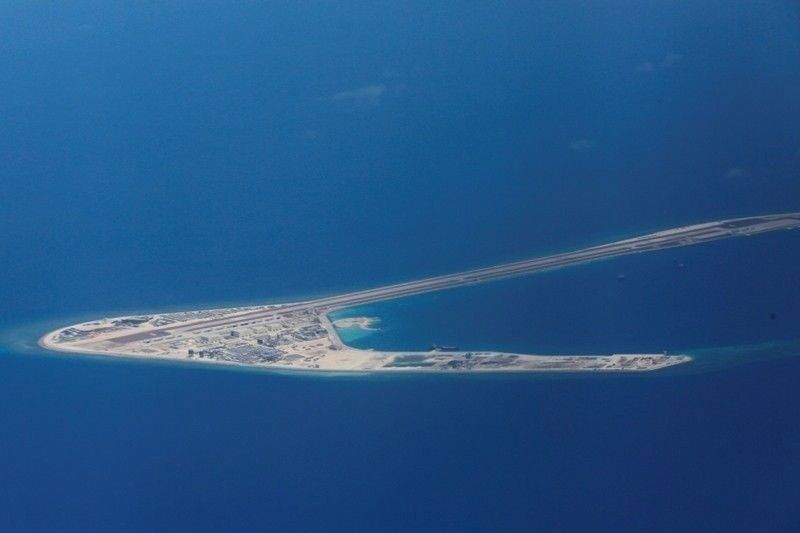‘Next Philippine leader must strengthen West Philippine Sea policy’

MANILA, Philippines — The next Philippine leader must craft a responsive and strategic foreign policy to reverse the losses caused by the lackadaisical policy of the current administration, according to think tank Stratbase-Albert Del Rosario Institute (Stratbase-ADRI).
Professor Victor Andres Manhit president and CEO of Stratbase-ADRI, said that the new foreign policy should strengthen linkages with like-minded states to counter the threat from China and other traditional and non-traditional security challenges.
He said the US remains a primary ally of the Philippines and is key to rallying support from the international community to counter China’s continued aggression in the South China Sea.
“The defense agreements with the United States must be revisited to ensure maximal inter-operability vis-à-vis new and emerging threats,” Manhit said in a paper, A Responsive and Strategic Foreign Policy Outlook in an Interconnected and Multipolar World, presented at a virtual forum in partnership with Bower Group Asia (BGA) held April 5.
“The new foreign policy that needs to be crafted needs to prioritize the country’s national sovereignty, territorial integrity, and developmental interests,” said Manhit.
The forum coincided with the launch of book “Elusive Balances: Shaping US-Southeast Asia Strategy” of international policy expert Dr. Prashanth Parameswaran, deputy head of research for BGA.
Manhit recommends the immediate formulation of a new national security strategy, based on the July 12, 2016 Arbitral Ruling on the South China Sea Dispute, and to maintain a firm, consistent and uncompromising position in terms of the Philippines’ sovereign rights in the West Philippine Sea.
He supports the continuity of the 15-year, three-phased Armed Forces of the Philippines (AFP) modernization program, with greater focus on acquisition of advanced naval, aerial, and strategic defense assets in cooperation with key allies and strategic partners.
Furthermore, Manhit said the next administration should optimize, leverage and upgrade the Philippines’ existing defense agreements with like-minded states and other key regional powers, develop a Philippine digitalization strategy and a vigorous cyber defense posture; establish a specialized climate security agency and/or advisor to develop targeted strategies, create synergies among relevant agencies, and engage with international funding agencies; build up capacity in disease surveillance, data collection and multi-sectoral responses in public health emergencies; and a comprehensive risk assessment and management strategy must be done regularly to inform national policies to deal with major non-traditional security threats, such as natural disasters and pandemics.
At the forum and book launch, Ernest Bower IV, president and CEO of BGA, talked about the perceptions of the United States’ engagement in Southeast Asia.
He pointed to Parameswaran’s cited the need for translating ASEAN’s importance to Washington into concrete commitments and actions amid other global commitments.
Parameswaran, who is also a Fellow at The Wilson Center-Asia Program and senior columnist for The Diplomat, said the Biden administration is trying to find its own feet with respect to working with allies and partners.
He cited surveys conducted by the Institute of Southeast Asian Studies, saying that China is seen not only as the number one economic player in Southeast Asia, but also the number one political and strategic player.
- Latest
- Trending






























